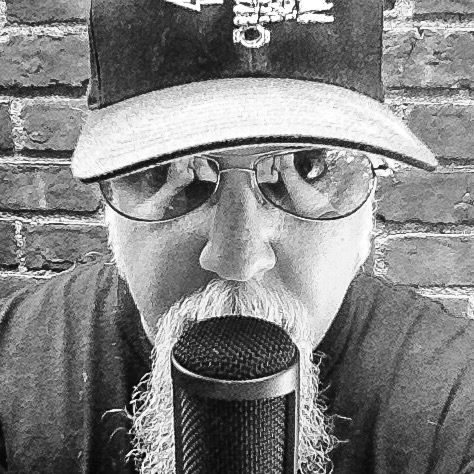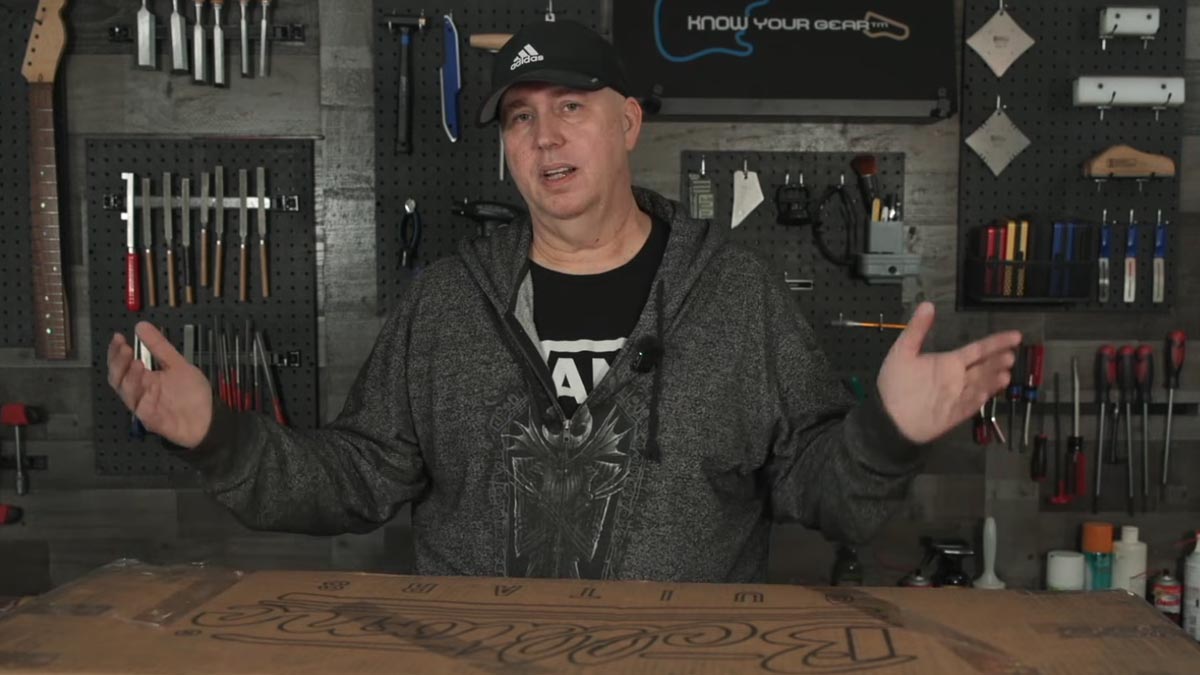Behind the Mask: A Brief History of Guitarists With an Identity Crisis
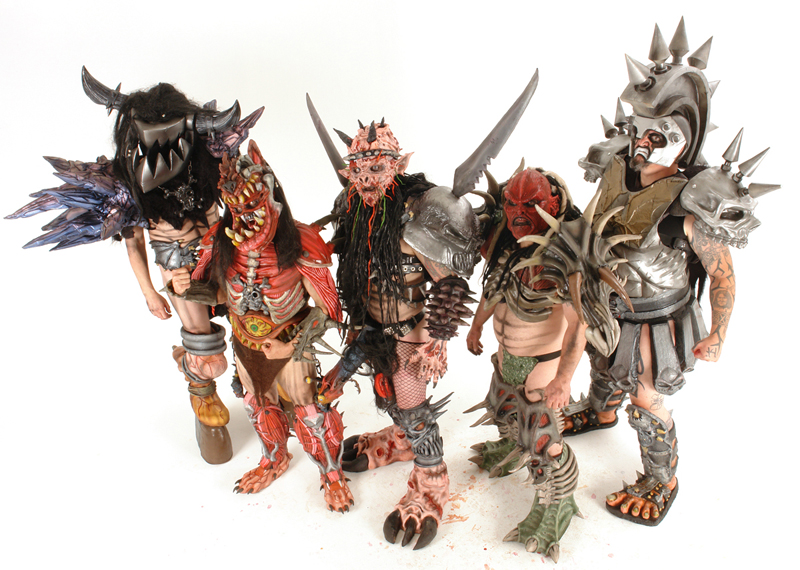
What possesses a musician to obscure his or her ugly mug with a mask or makeup?
There are probably as many reasons as there are noodles in a box of Kraft Macaroni & Cheese: showmanship, shyness, chronic acne and participation in the witness protection program are a few of the more popular explanations.
Whatever the reason, musicians have worn masks since prehistoric times, when cavemen donned hollowed-out animal heads after the hunt and entertained the tribe with rousing renditions of “The Great White Buffalo.”
Surprisingly, the history of mask-wielding rock guitarists is not well documented. While it’s difficult to ascertain who was the first, one likely candidate for the forefather of modern veiled rockers is Ron Haydock, a Gene Vincent wannabe who made his living writing adult pulp-fiction novels like Ape Rape and Lesbian Stripper and articles for Famous Monsters magazine.
In the mid Sixties, Haydock donned long underwear, a ski mask and a Gibson ES-125 to perform as the Batman-inspired “superhero” character Rat Pfink in below-budget films like Rat Pfink a Boo Boo and Lemon Grove Kids Meet the Monsters. In the Seventies, several punk and experimental musicians donned masks to stand out from the crowd and express their uniqueness (or perhaps hide their shame).
Guitarist Philip Lithman, better known as Snakefinger, performed a handful of shows onstage with San Francisco avant-garde visionaries the Residents while wrapped up like a mummy, before the group adopted their iconic eyeball masks in the Eighties. As part of the Mentors’ “rape rock” image, Eric Carlson (a.k.a. Sickie Wifebeater) wore a black executioner’s–cum–KKK hood, probably to avoid public beat-downs by pissed-off feminists and offended prison guards.
Since then, the legion of masked men has grown. Eighties progressive hair rockers Crimson Glory started off wearing full-face silver masks, but after they discovered the face-melting, poodle-perm-wilting heat of performing while encased in plastic for an entire set, they switched to Phantom of the Opera–style half masks.
All the latest guitar news, interviews, lessons, reviews, deals and more, direct to your inbox!
Unfazed by such annoyances, Nashville-based surf-’mentalists Los Straitjackets perform onstage wearing leather Mexican wrestler lucha libre masks. Guitarists Bronson and Gravy of Mushroomhead still complain that Slipknot stole their mask shtick, but both bands probably wouldn’t exist if it weren’t for the path paved by Gwar. Body Count’s D-Roc rocked a Jason-style hockey mask allegedly to avoid the publicity resulting from the band’s song “Cop Killer,” but we think he didn’t want to be recognized by police as he cruised through Compton.
Kiss may be known as the original makeup-clad rockers, but at least one year before Ace Frehley became “Space Ace,” guitarist Zal Cleminson of the Sensational Alex Harvey Band appeared onstage in mime makeup, looking like Marcel Marceau on crack. First or not, Kiss’ black-and-white evil clown legacy lives on with metal guitarists like Infernus of Gorgoroth and Abbath and Demonaz of Immortal.
Ex–Limp Bizkit guitarist Wes Borland and Greg Tribbett of Mudvayne prefer a more colorful approach to makeup, painting their faces in colors not found in nature. One makeup-clad guitarist closest in spirit to original masked rocker Ron Haydock is the Misfits’ Doyle Wolfgang Von Frankenstein, who has appeared in several splatter films, married a female wrestler/stripper and has an übercool name. Of course, the influence of the great El Kabong should not be overlooked.
Long suspected to be the alter ego of Quick Draw McGraw hiding behind a mask to avoid arrest for assault and battery and public intoxication (where do you think the “bong” in kabong came from?), the flamenco/tejano guitarist’s unique sartorial style and guitar destruction tendencies are notable for inspiring Esteban and Pete Townshend, respectively.
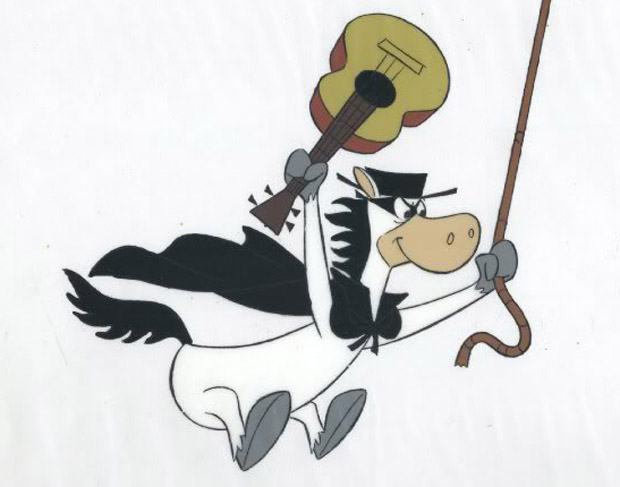
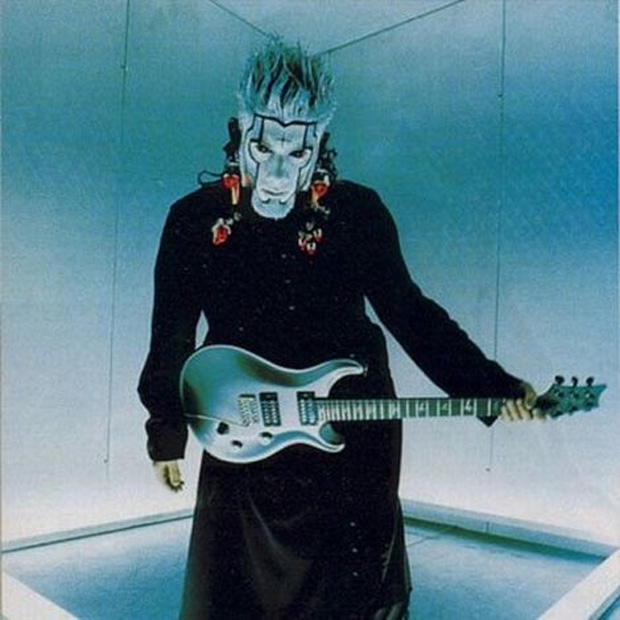

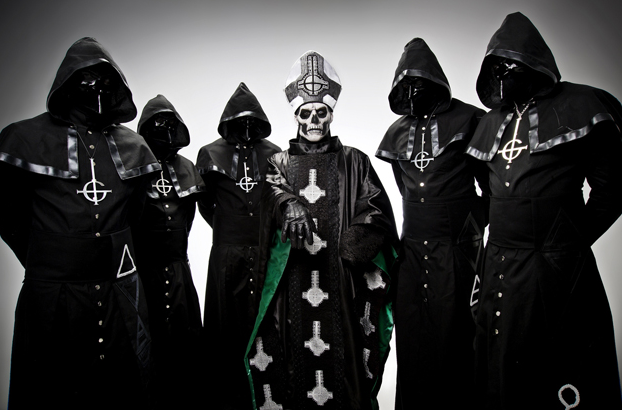
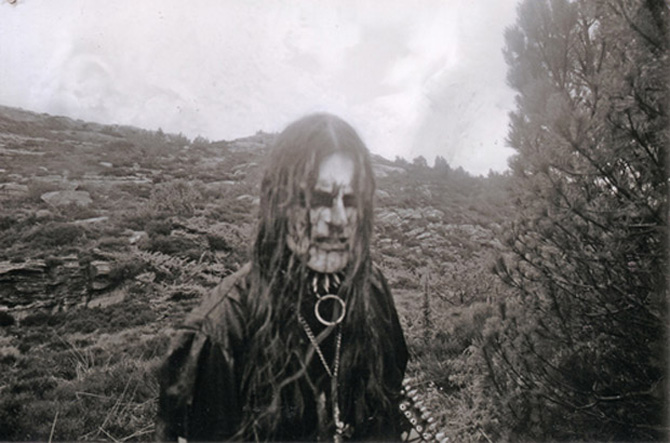
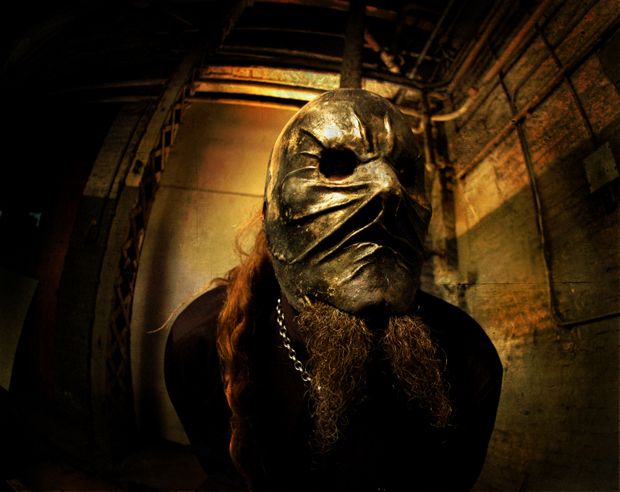
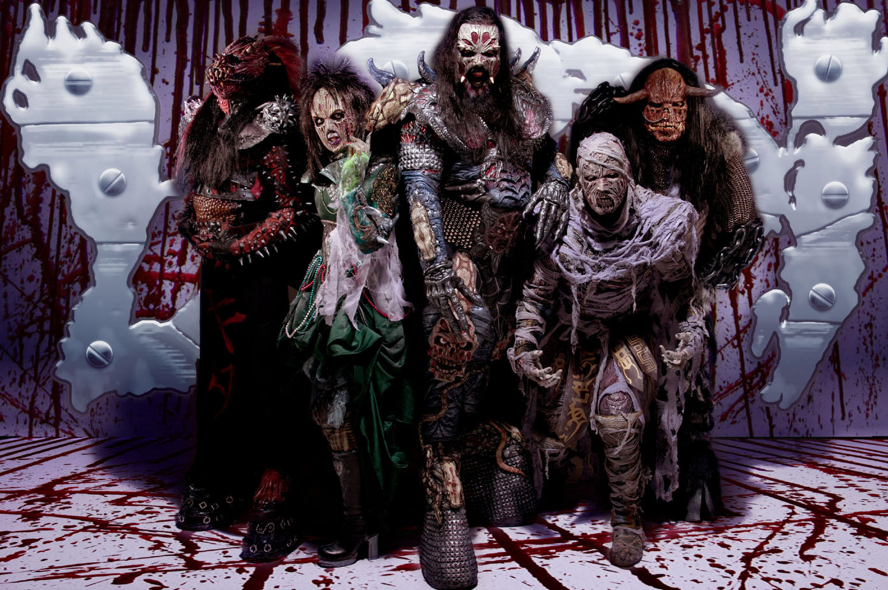
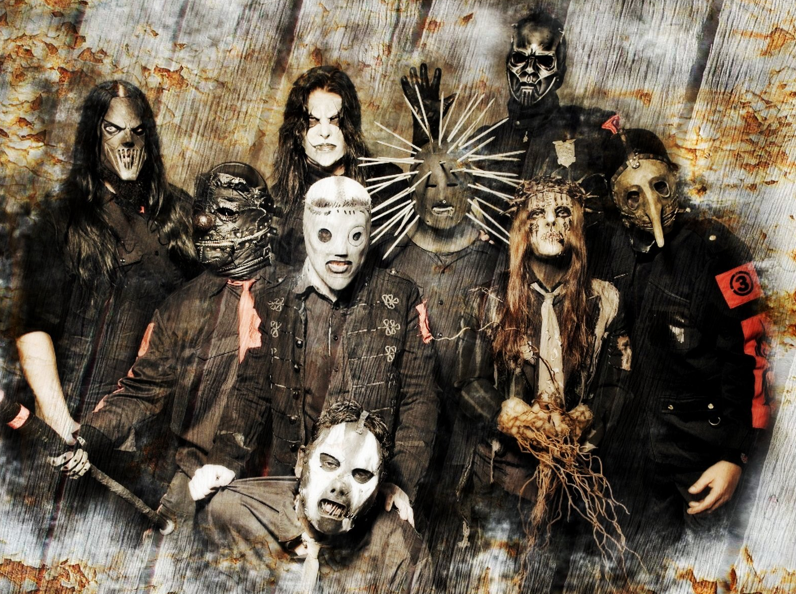
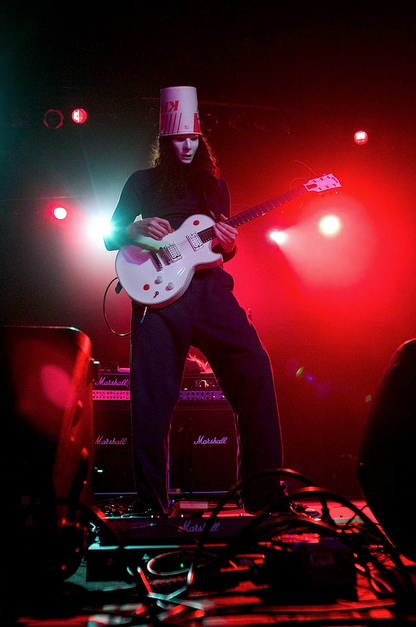
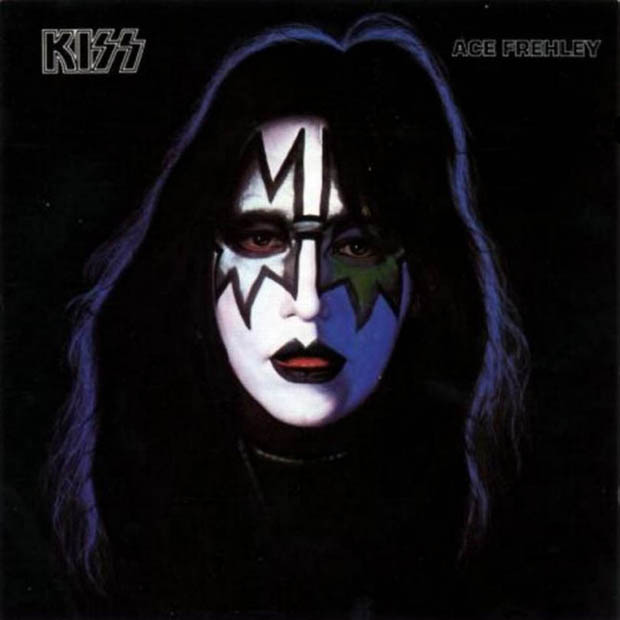
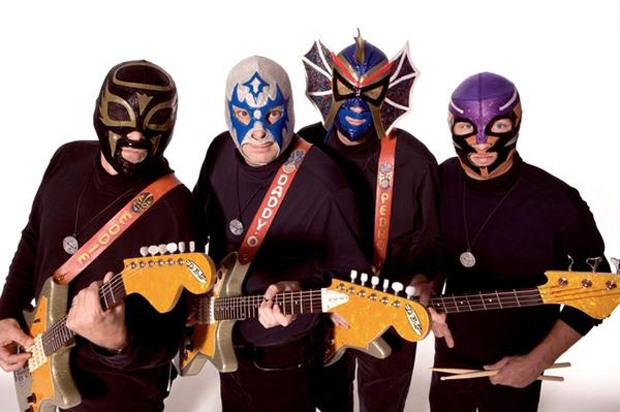
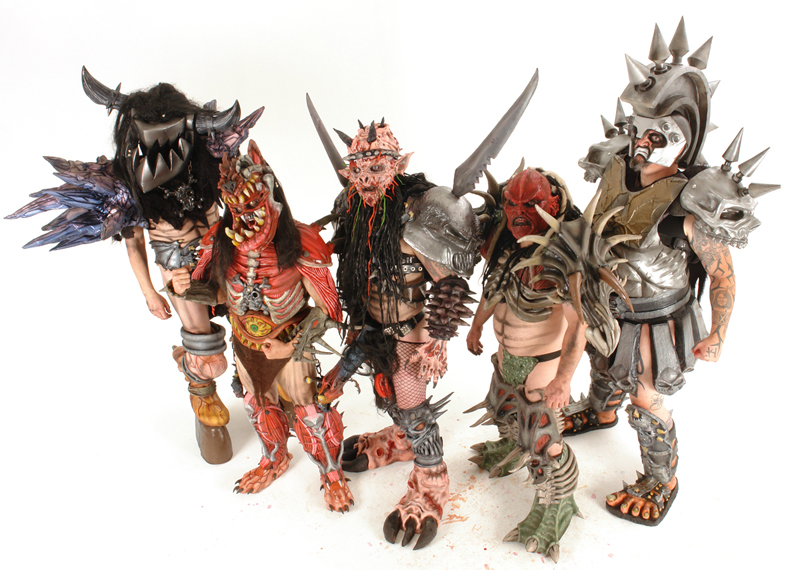
Chris is the co-author of Eruption - Conversations with Eddie Van Halen. He is a 40-year music industry veteran who started at Boardwalk Entertainment (Joan Jett, Night Ranger) and Roland US before becoming a guitar journalist in 1991. He has interviewed more than 600 artists, written more than 1,400 product reviews and contributed to Jeff Beck’s Beck 01: Hot Rods and Rock & Roll and Eric Clapton’s Six String Stories.
